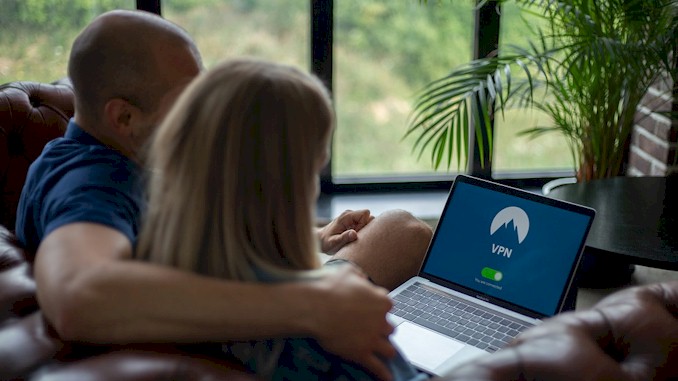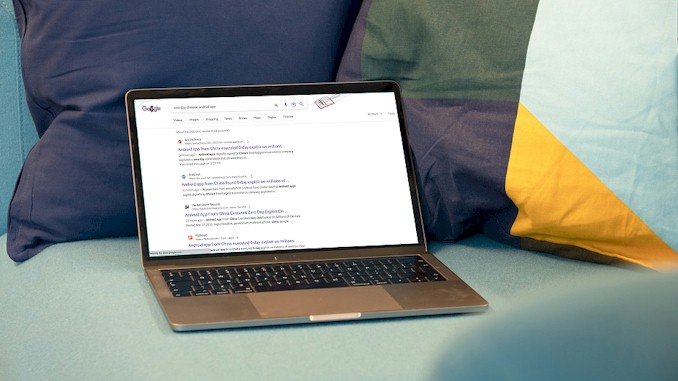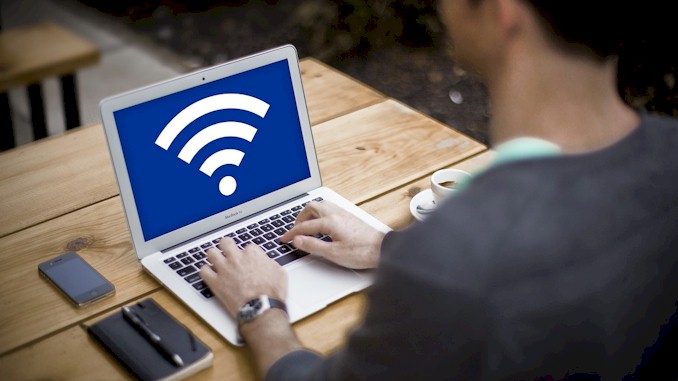Defying Boundaries: Harnessing VPN for School WiFi Access
If you’re a student who wants to access the internet without restrictions on your school wifi, you might have wondered how to make VPN work on school wifi. VPN stands for Virtual Private Network, and it allows you to create a secure connection to another network over the internet. With a VPN, you can bypass the firewall and censorship of your school network and access any website or app you want. In this blog post, I will show you how to make VPN work on school wifi in a few simple steps. I have tested this method myself and it works perfectly. You don’t need any technical skills or special equipment to follow this guide. All you need is a VPN service and your smartphone or laptop. Read on to find out how to make VPN work on school wifi and enjoy the freedom of the internet.
To make VPN work on school wifi, you need to do the following steps: 1) Choose a reliable VPN service that offers fast and secure servers. 2) Download and install the VPN app on your device. 3) Connect to a VPN server of your choice. 4) Enjoy unrestricted internet access on your school wifi. This is the basic procedure for making VPN work on school wifi. In the next paragraphs, I will explain each step in more detail and give you some tips and tricks to optimize your VPN experience.
You might be wondering why you need a VPN in the first place, and what are the benefits of using one on your school wifi. A VPN is not only a tool to bypass censorship and access blocked websites, but also a way to protect your online privacy and security. With a VPN, you can encrypt your data and hide your IP address from prying eyes. You can also avoid bandwidth throttling and speed up your internet connection. A VPN can also help you access geo-restricted content and services, such as Netflix, Hulu, Spotify, and more. In this blog post, I will share with you some of the best VPN services for school wifi, and how to choose the one that suits your needs and budget. I will also give you some tips on how to use a VPN safely and effectively on your school wifi. So stay tuned and keep reading to learn more about how to make VPN work on school wifi.
Why does VPN not work on school Wi-Fi?
You may have tried to use a VPN on your school Wi-Fi network, only to find out that it doesn’t work. This can be frustrating, especially if you want to access some websites or apps that are blocked by your school. But why does VPN not work on school Wi-Fi, and what can you do about it?
There are three main reasons why your VPN may not work on school Wi-Fi:
- Blacklisting VPN IP addresses: Your school may use a service that identifies and blocks the IP addresses used by VPN servers. This way, they can prevent you from connecting to a VPN and bypassing their firewall and censorship. Free VPNs are more likely to be blocked, as they have fewer IP addresses and less resources to change them frequently. Paid VPNs usually have more IP addresses and can switch them more often to avoid being detected and blocked.
- Port blocking: Your school may also block some ports that are used by VPNs to communicate with their servers. Ports are like doors that allow data to enter and exit a network. By blocking some ports, your school can stop some types of data, such as VPN traffic, from passing through. VPNs that use the OpenVPN protocol usually run on TCP port 443 or UDP port 1194. If your school blocks these ports, your VPN will not work.
- Deep packet inspection: This is a more advanced technique that your school may use to analyze the data packets that travel through their network. Data packets are like envelopes that contain information about the sender, the receiver, and the contents of the data. By inspecting the data packets, your school can detect if they are encrypted or not, and what kind of encryption they use. If they recognize that you are using a VPN encryption, they can block your VPN traffic.
These are some of the ways that your school can block VPNs on their Wi-Fi network. However, there are also some solutions that you can try to unblock your VPN and access the internet without restrictions. In the next paragraph, I will show you how to make VPN work on school Wi-Fi in a few simple steps.
How to Make VPN Work on School Wi-Fi: A Step-by-Step Guide
If you want to use a VPN on your school Wi-Fi network, you need to follow these steps:
- Choose a reliable VPN service: Not all VPNs are created equal, and some may not work well on school Wi-Fi. You need to choose a VPN service that has fast and secure servers, a large number of IP addresses, and the ability to bypass port blocking and deep packet inspection. You also need to choose a VPN service that has native apps for your devices, and that offers a free trial or a money-back guarantee. Some of the best VPN services for school Wi-Fi are ExpressVPN, NordVPN, and Surfshark.
- Download and install the VPN app: Once you have chosen a VPN service, you need to download and install the VPN app on your device. You should do this at home, as you may not be able to access the VPN website on school Wi-Fi. Follow the instructions on the VPN website or app to create an account and activate your subscription. You may also need to copy an activation code that you will receive in an email.
- Connect to a VPN server of your choice: After installing the VPN app, you need to launch it and log in with your account information. Then, you need to select a VPN server of your choice. You can choose a server in your own country or in another country, depending on your needs. For example, if you want to access geo-restricted content or services, such as Netflix, Hulu, Spotify, etc., you need to choose a server in the country where those services are available.
- Enjoy unrestricted internet access on school Wi-Fi: Once you are connected to a VPN server, you can enjoy unrestricted internet access on school Wi-Fi. You can browse any website or app you want, without worrying about censorship or bandwidth throttling. You can also protect your online privacy and security, as your data will be encrypted and your IP address will be hidden from prying eyes.
This is the basic procedure for making VPN work on school Wi-Fi. In the next paragraphs, I will explain each step in more detail and give you some tips and tricks to optimize your VPN experience.
Why You Need a VPN on Your School Wi-Fi: The Benefits of Using a VPN
You may be wondering why you need a VPN on your school Wi-Fi network, and what are the benefits of using one. A VPN is not only a tool to bypass censorship and access blocked websites, but also a way to protect your online privacy and security. Here are some of the benefits of using a VPN on your school Wi-Fi:
- Boost your security: The main benefit of a VPN is the security it offers. With your data encrypted, you don’t have to worry about potentially unsecured public Wi-Fi, or school network restrictions. Even if your educational establishment has substandard router security, your personal information will still be safe. A VPN can also protect you from malware, hackers, cyberbullies, and other online threats that may target you on school Wi-Fi.
- Increase your privacy: If you’re connected to the school Wi-Fi, or the Wi-Fi of your college or university, it’s likely that they’ll be able to monitor your activity. They may see what websites you visit, what apps you use, what files you download, and even what messages you send or receive. This can be a violation of your privacy, and may also expose you to unwanted ads, tracking, or censorship. With a VPN, you can hide your IP address and encrypt your traffic, making it impossible for anyone to see what you do online. You can also avoid leaving any traces of your browsing history or cookies on school computers.
- Get a temporary IP address: Another benefit for students is the ability to use a new IP address while using school Wi-Fi. An IP address is a unique identifier that shows your approximate location and ISP on the internet. By changing your IP address with a VPN, you can access geo-restricted content and services, such as Netflix, Hulu, Spotify, and more. You can also bypass any IP-based blocks or bans that may be imposed by your school or other websites. For example, if your school blocks Facebook, Twitter, Buzzfeed, Snapchat, Netflix, or any other app or website, those restrictions may no longer exist with VPN.
- Save money: A VPN can also help you save money while using school Wi-Fi. Some websites and services may charge different prices depending on your location and currency. By using a VPN, you can change your location and currency to get better deals and discounts on online shopping, travel bookings, subscriptions, and more. You can also avoid bandwidth throttling and speed up your internet connection with a VPN. Bandwidth throttling is when your ISP or network administrator deliberately slows down your connection to reduce congestion or save costs. A VPN can prevent this by hiding your traffic from your ISP or network administrator.
These are some of the benefits of using a VPN on your school Wi-Fi network. As you can see, a VPN can offer you more security, privacy, freedom, and savings while browsing online. In the next paragraph, I will show you how to choose the best VPN service for school Wi-Fi.
How to Choose the Best VPN Service for School Wi-Fi: Factors to Consider
If you want to use a VPN on your school Wi-Fi network, you need to choose a VPN service that suits your needs and budget. There are many VPN services available on the market, but not all of them are equally good for school Wi-Fi. Here are some factors to consider when choosing the best VPN service for school Wi-Fi:
- Bandwidth: Look for a VPN service that does not limit your data or bandwidth while you work. Some VPN services may impose caps or throttling on your VPN usage, which can affect your online performance and experience. You want a VPN service that offers unlimited data and bandwidth, so you can browse, stream, download, and upload without any restrictions.
- Security: Search for industry-leading security features, like 256-bit encryption and protection against leaks. A VPN service should encrypt your data and hide your IP address from anyone who may try to spy on your online activity. It should also prevent any leaks of your DNS, WebRTC, or IPv6 information, which could expose your identity or location. You want a VPN service that offers a kill switch feature, which automatically disconnects you from the internet if the VPN connection drops.
- Price: Consider the cost of each VPN service and look for a service that fits within your budget. VPN services may vary in price depending on the features they offer, the number of servers they have, and the length of the subscription plan. You want a VPN service that offers a reasonable price for the quality and quantity of services it provides. You also want a VPN service that offers a free trial or a money-back guarantee, so you can test it out before committing to a long-term plan.
- Speed: Check the speed of each VPN service and look for a service that offers fast and consistent connections. A VPN service may affect your internet speed depending on the server location, encryption level, protocol, and network congestion. You want a VPN service that offers servers close to your location, as well as servers in other countries if you want to access geo-restricted content. You also want a VPN service that offers multiple protocol options, such as OpenVPN, IKEv2, WireGuard, etc., so you can choose the best one for your device and network.
- Ease of use: Evaluate the ease of use of each VPN service and look for a service that offers user-friendly apps and interfaces. A VPN service should be easy to download, install, set up, and use on your device. It should also offer clear instructions and tutorials on how to use its features and troubleshoot any issues. You want a VPN service that offers native apps for your devices, such as Windows, Mac, iOS, Android, etc., as well as browser extensions for Chrome, Firefox, etc., if you prefer.
These are some of the factors to consider when choosing the best VPN service for school Wi-Fi. Based on these criteria, some of the best VPN services for school Wi-Fi are ExpressVPN, NordVPN, Private Internet Access, IPVanish, and Surfshark. In the next paragraph, I will show you how to use a VPN safely and effectively on school Wi-Fi.
How to Use a VPN Safely and Effectively on School Wi-Fi: Tips and Tricks
If you have chosen a VPN service and installed it on your device, you are ready to use it on school Wi-Fi. However, there are some tips and tricks that can help you use a VPN safely and effectively on school Wi-Fi. Here are some of them:
- Choose the right server: When you connect to a VPN server, you should choose one that is close to your location or the location of the content you want to access. This way, you can get faster and more reliable connections, as well as avoid geo-restrictions and censorship. For example, if you want to access Netflix US, you should choose a VPN server in the US. You can also use a VPN server in another country if you want to access content that is not available in your own country.
- Use the kill switch feature: A kill switch is a feature that automatically disconnects you from the internet if the VPN connection drops. This way, you can prevent any leaks of your data or IP address that could expose your online activity or identity. A kill switch is especially useful when you use public Wi-Fi networks, such as school Wi-Fi, where the connection may be unstable or insecure. You should always enable the kill switch feature on your VPN app before connecting to a VPN server.
- Clear your cache and cookies: Your browser may store some information about your online activity, such as your browsing history, passwords, and cookies. This information can reveal your identity or location, as well as affect your online performance and experience. For example, some websites may show you different prices or content depending on your location or previous visits. You should always clear your cache and cookies before and after using a VPN on school Wi-Fi, to ensure your privacy and security.
- Use multiple protocol options: A protocol is a set of rules that governs how data is transferred between your device and the VPN server. Different protocols have different advantages and disadvantages in terms of speed, security, and compatibility. For example, OpenVPN is considered the most secure and versatile protocol, but it may be blocked by some firewalls or networks. You should use a VPN service that offers multiple protocol options, such as OpenVPN, IKEv2, WireGuard, etc., so you can choose the best one for your device and network.
- Check for leaks: A leak is when your data or IP address is exposed despite using a VPN. This can happen due to various reasons, such as software bugs, configuration errors, or network interference. A leak can compromise your privacy and security, as well as affect your online performance and experience. You should always check for leaks before and after using a VPN on school Wi-Fi, to ensure that your VPN is working properly and protecting you from prying eyes. You can use online tools such as ipleak.net or dnsleaktest.com to check for leaks.
These are some of the tips and tricks that can help you use a VPN safely and effectively on school Wi-Fi. By following these tips and tricks, you can enjoy unrestricted internet access on school Wi-Fi without compromising your privacy and security. In the next paragraph, I will conclude this blog post and summarize the main points.
Conclusion: How to Make VPN Work on School Wi-Fi and Enjoy the Internet Freedom
In this blog post, I have shown you how to make VPN work on school Wi-Fi and enjoy the internet freedom. I have explained why you need a VPN on your school Wi-Fi network, and what are the benefits of using one. I have also shown you how to choose the best VPN service for school Wi-Fi, and how to use it safely and effectively on school Wi-Fi. Here are the main points to remember:
- A VPN is a tool that encrypts your data and hides your IP address from anyone who may try to spy on your online activity. It can help you bypass censorship and access blocked websites, as well as protect your online privacy and security.
- You need a VPN on your school Wi-Fi network because your school may block some websites or apps that you need or want to access, or monitor your online activity. A VPN can help you access any website or app you want, without worrying about censorship or surveillance.
- You should choose a VPN service that offers unlimited data and bandwidth, industry-leading security features, a reasonable price, fast and consistent connections, and user-friendly apps and interfaces. Some of the best VPN services for school Wi-Fi are ExpressVPN, NordVPN, Private Internet Access, IPVanish, and Surfshark.
- You should use a VPN safely and effectively on school Wi-Fi by choosing the right server, using the kill switch feature, clearing your cache and cookies, using multiple protocol options, and checking for leaks. These tips and tricks can help you use a VPN without compromising your privacy and security, or affecting your online performance and experience.
I hope this blog post has been helpful and informative for you. If you have any questions or comments, please feel free to leave them below. Thank you for reading and happy browsing!







